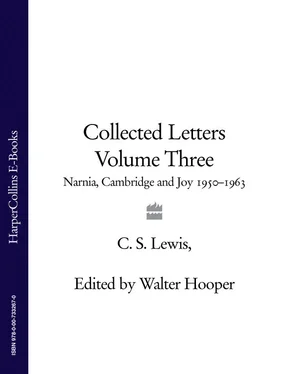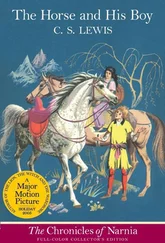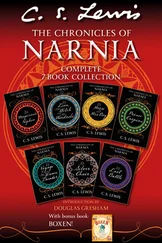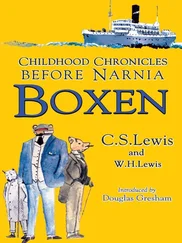I think the general narrative manner is good, and, with certain reservations, the character of the wife. I don’t find Cobham so good: but my reasons will best come out as we go along. These are my notes;
P. 2. Having worked…everything seemed . Am I pedantic to object to the syntax? If everything is the subject of the sentence then it ought to be everything , not Hermione, who had ‘once worked’ etc
P. 3. just that . I don’t understand what these words mean. But perhaps it’s an American idiom that I don’t know. If so, O.K.
righteously felt sincerely? genuinely? I don’t know what ‘righteously feeling’ wd. mean
P. 4. his bent was military etc. This is the first of many passages in wh. you refer to C. as a soldier. But wouldn’t the governor of a province in India be in the I.C.S. (Indian Civil Service) not in the Army?
enlisted . Do you mean went in as a private soldier? (wh. is what enlist means to us). If so this is infinitely improbable for a young man of C’s social position at that time. You mean, don’t you, that he ‘went into the army’ i.e. got a commission?
P 5. to never yield , ‘never to yield’?
P. 6. What are the drafts? .
P. 9. para 3. v. good P. 20. How those vicars . But they wouldn’t, you know. They might have v. likely 100 or so years earlier. In Cs time they’d all have been talking about a God of love. I don’t mean that our Englishman in India, bitten with Oriental wisdom, might not say what C. does, but then he wd. be a fool, which you don’t mean C. to be.
savant . Doesn’t this suggest something academic and even scientific? Perhaps ‘sage’ wd. do.
P. 24. What are physical virtues? It ought to mean good muscles, good digestion, sound teeth etc, but I don’t think that’s what you do mean.
P. 25. better stayed . No English speaker wd. omit the have .
P. 26. She might even laugh…wd. not have . Oh but surely—surely—a man so near renunciation and enlightenment as you mean C. to be wd. have got beyond the stage of minding whether people laughed at him or not ages ago . You might as well introduce a great pianist who has difficulty about five finger exercises!
visit the Tower . More what schoolboys, foreigners, or very country cousins wd. do—not an ‘Indian Civilian’ and his bride. They’re not like that.
P 28. Period is purely American. The English is ‘full stop’. But of course you may be entitled to translate, just as you’d make ancient Egyptians talk modern American if you were writing a story about them. Still, it raises awkward problems when the two languages are almost identical.
P 29. I’m kind . Wouldn’t anyone say ‘I am kind’?
P. 30. would they laugh…military man . See notes on pp. 26 and 4.
P. 36. I’m not quite clear what is meant by putting God ‘primarily’ above everything.
P. 34. beg apology . Surely one begs a pardon or makes an apology?
P. 36. soldier etc. see on pp. 4, and 30.
I’m like you…bloody Mary . This sounds to me like the language of an utterly commonplace old grumbler, not one far advanced in the mystic path.
I will pay you the compliment (for it is one: the naked truth is not for fools) of giving you a perfectly honest criticism. I don’t think the story, as it stands, will do. But its partial failure does not prove (this is what you most want to know) an absence of literary talent. That, I think, you probably have. What is wrong with this story is due to inexperience. You have set yourself two handicaps, either one of which wd. be enough to wreck most authors. (1.) You are writing about a society you don’t know. I don’t know much about Anglo-Indian life myself, but your picture somehow smells all wrong. (2.) You have tried to put across a marvel (the lévitation. Whether Swamiji wd. have let us call it a ‘miracle’ or not doesn’t concern us as literary critics).
Now there were only two ways to make us accept it. One was by making the whole story fantastic—like a fairy tale—from the word go. That, of course I see, wd. have been quite inconsistent with the mood you wanted to create. The other was so to build up the spirituality of Cobham or Swamiji or (better) both, that we could believe anything of them. And that’s where you come down. We see v. little of Swamiji and what we do see has no aura of grandeur or mystery, nothing numinous , about it. As for Cobham, he is incredible as a mystic. There’s no trace of serenity or love, and his numerous speeches to Hermione are in a vein both of censoriousness and of slangy bullying which is not only unlike a budding sage but quite untrue to the social group he wd. belong to. In other words the difficulties of the theme have, on this occasion, defeated you. I await with interest a story with a better chosen scene and subject. There is nothing amateurish about the actual writing and you have, I think, the gift for ordonnance . 38
Are we still friends? I hope so,
yours sincerely,
C. S. Lewis
TO WAYLAND HILTON YOUNG (P):
Magdalen
24/2/52
Dear Hilton-Young–
I think I muffled the point I was trying to make yesterday about the significance-unknown-to-the-artist in a work of art. I certainly didn’t intend to treat ‘Either Inspiration or the Unconscious’ as an exhaustive alternative for its source.
It’s more like this. Every fiction, realistic or fantastic, uses forms taken from the real world: a woman, a ship, a gun, a horse etc. Now the total significance of these in the real world (call it T) is known to nobody. And the fraction of it known to each is slightly (or, it may be) widely different. The fraction in the artist’s mind (both conscious and unconscious) is T/A: in the reader’s T/R. An extreme case of difference wd. be, say, if a child who didn’t yet know the facts of generation put a marriage into a story. His ignorance might make that bit of his story simply comic & absurd to the adult reader: but it might also make that bit to the adult reader far more significant than the child had ever intended it to be.
Now I hope no individual reader of my work is to me as adult to child. But the aggregate experiences of my readers, contributing to each from T/Rl + T/R2 etc, presumably are. At any rate a classic, wh. has been read by great minds for 1000 years, and discussed, will have all its forms interpreted by a composite mind, which ought to see in them more than the artist intended. This is not a complete substitution of a new work for his original one, for it is his particular grouping of forms which evoke the whole response. (As if successive generations learned better and better dances to one original tune: a certain formal element in it remaining constant but being more richly & subtly filled).
All this is only an elaboration of the old maxim that what you get out of work depends on what you bring to it. Humanity as a whole brings to the Aeneid more than Virgil could: therefore it must get more out. After all, you as an Atheist have to believe that in admiring natural beauty we are getting out of it what no-one put in: why shd. we not equally get out of verbal compositions what the composer didn’t put in?
Yours
C. S. Lewis
TO WAYLAND HILTON YOUNG (P): PC
Magdalen College
Oxford
27/2/52
Yes. T/Rn is only an aggregate unless either (A.) [?] 39 are real, as Plato & Hegel, in a different way, thought or (B.) Each educated T/R is, through tradition & critical discussion modified by the other T/Rs. Now I think A is probably and B is certainly true. Thanks for kind offer of hospitality: I’ll try to make it one of these days.
Читать дальше












